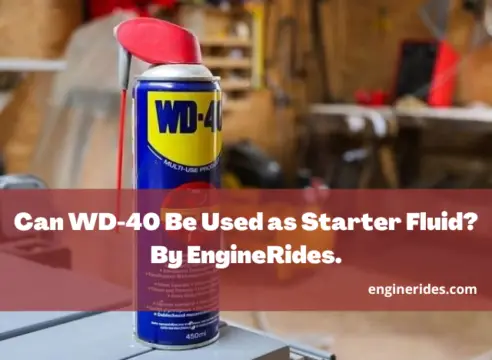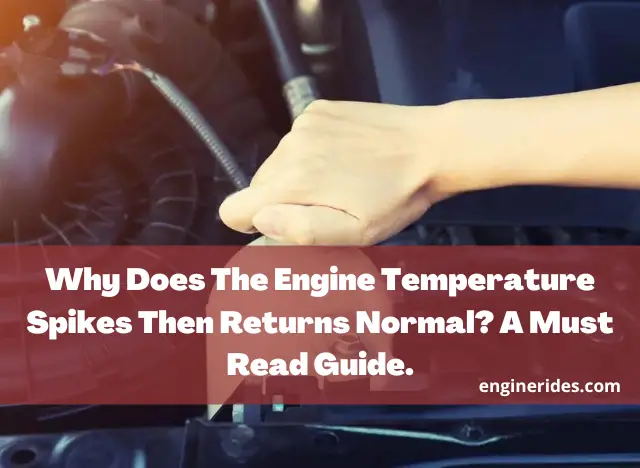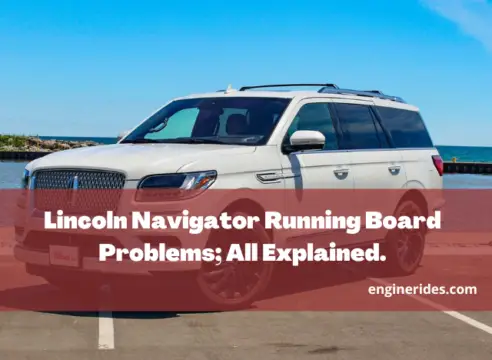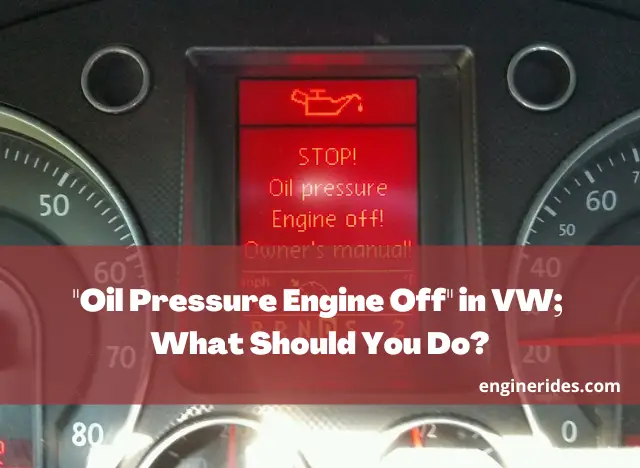Ever parked your car with perfectly fine tires, only to wake up to a flat one the next morning? Even more puzzling, have you ever experienced that flat tire mysteriously holding air later on? You’re not alone, and the reasons behind this automotive enigma are more common than you might think.
In this article, we’ll unravel the mystery behind tires that go flat overnight but seem to hold air later. We’ll explore the common causes, how to diagnose such issues, and preventive measures to keep your tires in top shape.
Table of Contents
Why Do Tires Go Flat Overnight?
Temperature fluctuations are the most possible cause for the tires to go flat overnight, but, there are a lot of possible reasons apart from this as mentioned below.
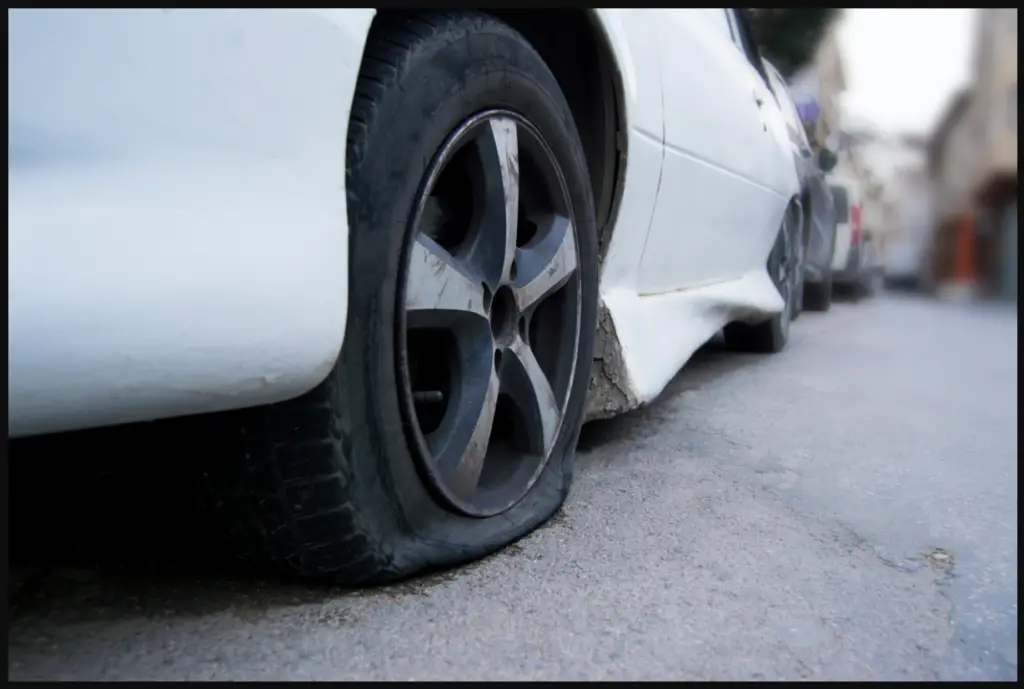
01. Temperature Fluctuations
One of the most common reasons for a tire appearing flat overnight is temperature fluctuations. As temperatures drop, the air inside the tire contracts, reducing the pressure and causing the tire to seem deflated.
This phenomenon is particularly noticeable during cold nights and can give the impression that the tire has gone flat overnight. Conversely, when the temperature rises, the air inside expands, potentially restoring the tire’s normal appearance.
02. Minor Punctures and Slow Leaks
Sometimes, small punctures from nails or glass shards are the culprits. These can cause a slow air leak, which might not be immediately evident but can lead to a flat tire overnight.
In some cases, these punctures can temporarily seal themselves when the tire is moved or warmed up by driving, causing the tire to appear re-inflated.
Toyota Camry Tire Pressure; Everything Explained
ENGINERIDES.COM
03. Valve Stem Issues
Another potential issue is the valve stem. If it’s damaged or loosened, it can slowly leak air. This type of leak might not be noticeable during the day when the car is in use, but over several hours of being parked, it can cause the tire to deflate significantly.
How to Diagnose the Issue?
Start with a thorough visual inspection of the tire. Look for any signs of punctures, cuts, or objects like nails embedded in the tire. Also, inspect the valve stem for any damage or looseness.
Use a reliable tire pressure gauge to check the pressure in all your tires, including the one that appears to have gone flat. Compare this pressure with the manufacturer’s recommended levels, typically found on a sticker inside the driver’s door jamb or in the vehicle’s manual.
If you can’t find any obvious cause and the problem persists, it’s best to consult a professional. They can perform a more thorough inspection, including checking for leaks using water or a special solution that reveals air escaping from tiny holes.
What can you do to prevent these problems?
Regularly checking your tire pressure is crucial. This not only helps in identifying a tire that’s losing air but also ensures that all your tires are at the optimal pressure for your vehicle’s performance and fuel efficiency.
Be aware of the impact of seasonal changes on tire pressure. Check and adjust tire pressure more frequently during cold months and ensure your tires are not overinflated in the summer.
Incorporate tire inspections into your regular vehicle maintenance routine. Look for signs of wear and tear, and have your tires rotated as recommended by the manufacturer or your mechanic to ensure even wear.
Is Overinflating Your Tires By 5 PSI A Bad Idea? Let’s Find Out!
ENGINERIDES.COM
What happens if you leave a flat tire overnight?
Leaving a flat tire on your vehicle overnight is generally not recommended, but it’s not always harmful if the car is not driven during that time. If you have no choice but to leave a flat tire overnight, it’s advisable to minimize the risk of damage.
Here are some considerations:
- Risk to the Rim
Leaving a flat tire overnight does not typically constitute a danger to the rim for just one day, especially if the vehicle is not driven.
However, if left for an extended period or driven on, it could lead to rim damage due to the weight of the car pressing down on the deflated tire.
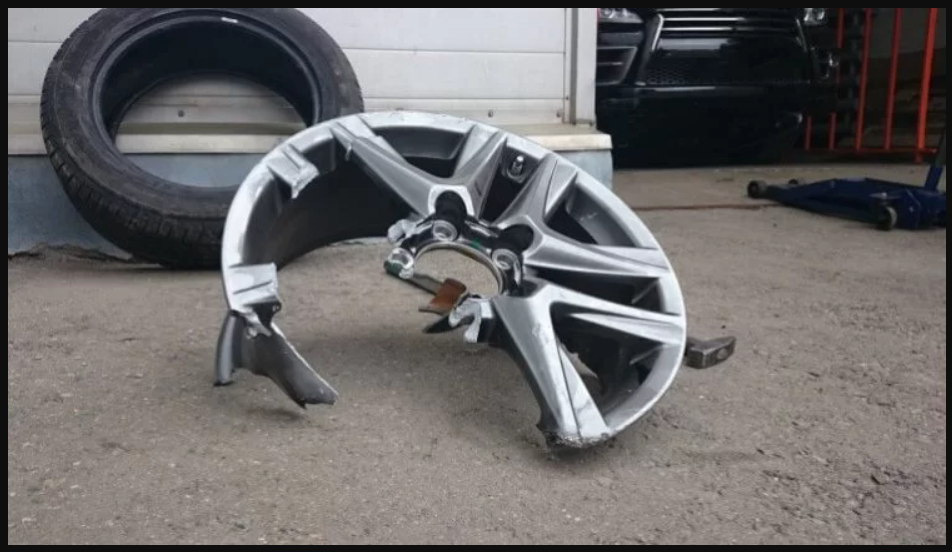
- Potential for Tire Damage
A flat tire can become more damaged if left untreated. It can become warped and put extra strain on the wheel bearings. Additionally, exposure to elements like rain or extreme temperatures can potentially damage the tire if left outside for too long.
- Safety Measures
If you must leave a flat tire overnight, it’s advisable to park the vehicle in a secure area and, if possible, elevate the vehicle to relieve the flat tire from bearing the weight of the car. This helps prevent further damage to the tire and wheel.
- Prompt Repair
It’s important to address the flat tire as soon as possible. The longer a tire remains flat, the more likely it is to suffer damage that could render it irreparable. Always inspect a flat tire promptly and either repair or replace it as needed.
And you have to remember, these are general guidelines, and the specific situation may vary based on the condition of the tire, the type of vehicle, and other factors. It’s always best to consult with a professional if you’re unsure about the condition of your tire or how to properly care for it.
Conclusion
The mysterious case of a tire going flat overnight but holding air later can usually be attributed to natural causes like temperature changes or minor punctures. Regular maintenance, proper tire pressure management, and routine inspections can help prevent these issues, ensuring a safer and more efficient driving experience.
Related FAQs
How Often Should I Check My Tire Pressure?
To maintain optimal tire health, check your tire pressure at least once a month and before long trips, especially during seasonal temperature changes.
Can Driving Habits Affect Tire Pressure?
Yes, aggressive driving, frequent braking, and driving on rough terrain can cause uneven tire wear and potentially lead to pressure issues.
Should I Replace a Tire That Frequently Goes Flat?
If a tire repeatedly goes flat, it might be a sign of severe wear or damage. It’s advisable to have it inspected by a professional and replaced if necessary.
How Long Do Tires Typically Last?
The lifespan of a tire varies depending on the type, driving conditions, and maintenance, but on average, tires can last between 25,000 to 50,000 miles.
Is It Safe to Drive on a Tire That Has Gone Flat Overnight?
Driving on a tire that has been flat can cause damage to the tire and wheel. If your tire appears flat, inspect it and inflate it to the proper pressure before driving, or use a spare tire if necessary.


